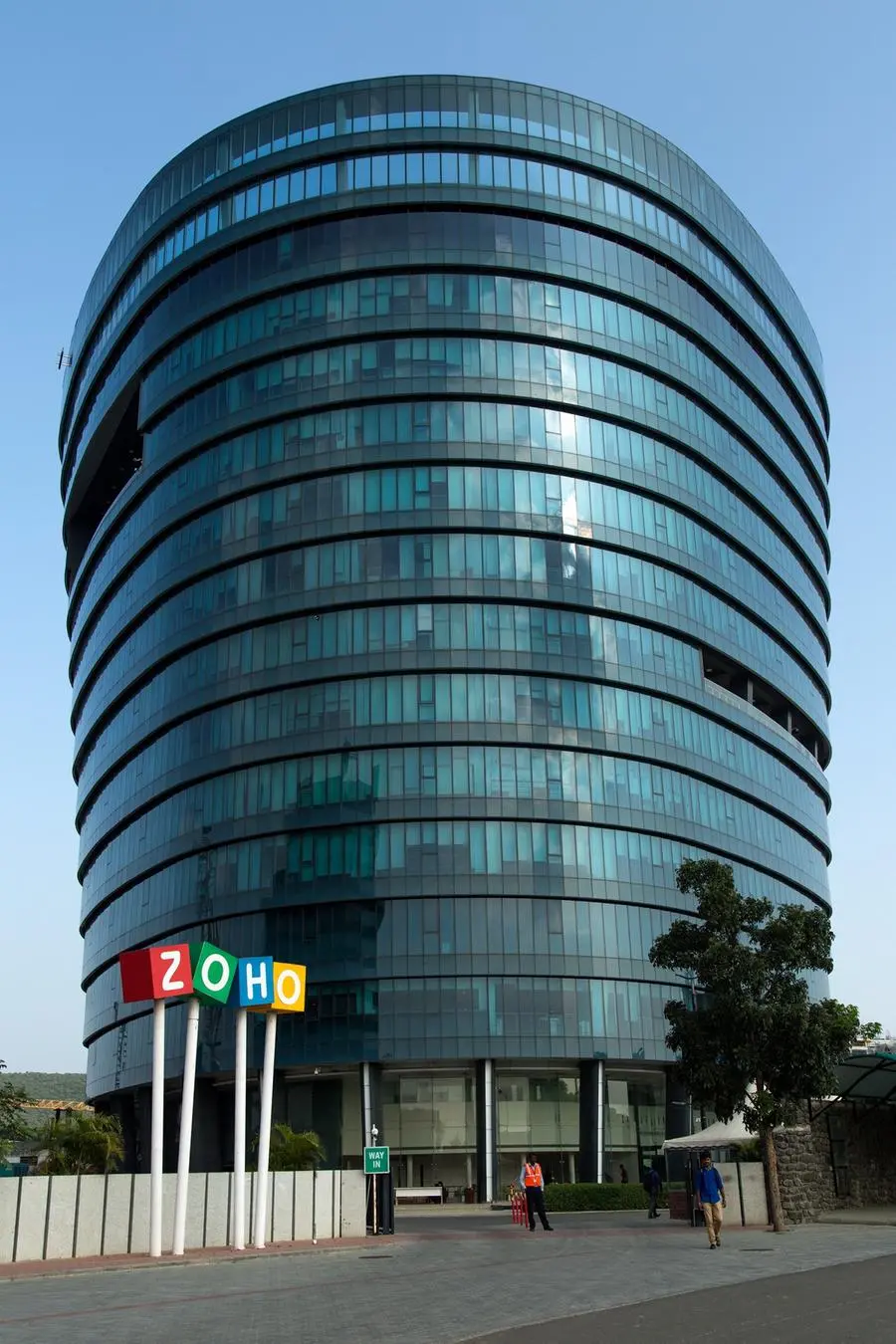PHOTO
Zoho Corp., the global software-as-a-service (SaaS) firm, has never taken external funding, and Sridhar Vembu, the billionaire co-founder and CEO, sees no reason for it to do so. According to him, there's little advantage for a private company to go public as it not only limits the freedom to innovate but also impacts the employees’ morale.
“We are not looking to go public and [have] stock market listings. This is primarily because we like operational freedom. Stock market is a very tough task master, and as a company you have to manage quarterly numbers, and even take tough measures sometimes, such as laying off employees,” Sridhar told Zawya.
He added that cutting jobs and making employees redundant directly undercuts the company’s long-term mission because employees’ morale gets affected.
“In the long term, therefore, the companies going for layoffs actually have worse loyalty from employees. That’s why we believe if we are public, we will get under pressure,” he said.
India-based Zoho (renamed from AdventNet in 2009) is a resolutely bootstrapped company and has always been profitable since the year of its inception over 25 years ago. Last year, the firm entered the $1 billion revenue club.
However, without venture capital and external funding, the firm’s journey has included its fair share of challenges.
“In the very beginning, it wasn't easy for us, and we didn’t have any business experience. Nevertheless, in the early days, we decided to move ahead out of necessity. And then we achieved profitability. At that point we looked around and said, well, we are having fun, why not continue with this,” Sridhar explained, adding, “Once we go public and take external funding, we cannot stay true to ourselves.”
He added that technology changes, but a company’s underlying philosophy, culture, and conviction don’t change easily, and these are long-standing values.
“It is the culture and convictions that create the technology, and we have to nurture that,” says Sridhar, born in a village in Tamil Nadu’s Thanjavur district into a family of farmers. He later graduated from IIT Chennai and went on to study at Princeton University, New Jersey. He then worked at Qualcomm in San Diego, California, and lived in and around the San Francisco Bay Area for several years until his return to India in 2019.


Don’t Chase Valuations
For the past few years, India has been a hotbed of startups. Several VC-backed startups have raised billions of dollars and stretched their valuations. In many cases, however, the inflated valuations have dipped shortly after getting the funding.
To this, Sridhar says, “My message to those startups is, don't focus on valuation. Instead, focus on revenue, focus on satisfying customers, and let the valuation take care of itself.”
In one of his latest tweets, he stated, “Startups that got hyper-inflated valuations in the bubble now face the prospect of having to ‘defend’ those valuations. This translates to price increases for customers & cost cutting for employees, resulting in poor customer satisfaction & employee morale. Bubbles do damage.”
He says the key questions any company must answer are how to create your own talent pool, how to nurture the talent, why your employees should stay with you for the long term and how to earn employees’ trust and loyalty.
“Once a company starts thinking that way, then naturally it will have a long-term strategy in place. I am not saying a company should not seek funding; they should if [they need to]. But more importantly they should keep the long-term focus and stick to [their] convictions,” he added.
Middle East a Bright Spot
Sridhar does acknowledge that the demand for SaaS has been slowing down since the height of the pandemic.
“Growth rates have definitely come down. However, on a long-term basis, I’m bullish on this market. This is primarily because it is fundamentally a productivity-enhancing technology and makes employees more productive and more efficient,” says Sridhar.
Zoho’s clients in the Middle East include businesses of all sizes, from large corporations to SMEs. The UAE has been the biggest market for the company in the MEA region, followed by South Africa, Saudi Arabia and Israel. The UAE has been the fastest-growing market for it globally, and the firm has achieved ten-fold growth over the last five years.
Users’ registrations are the fundamental driver of SaaS businesses. Last year, Zoho crossed 80 million registrations and has grown at a CAGR of 24% over the last five years. In terms of customers, it has grown by a CAGR of 32% in the past five years, while in terms of revenue it has been growing at a CAGR of 35%.
“This is just the beginning,” Sridhar said. “The kind of opportunities the Middle Eastern and Africa markets have shown us [indicate] we are about to grow by 10X or even 100X in coming years.”
(Reporting by Sunil S; editing by Seban Scaria)





















